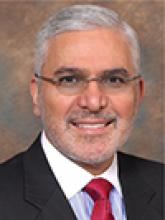Psychiatrists often have to deal with “ethically challenged” entities or individuals. This can be of concern because, ultimately, unethical policies or behavior can harm our patients. However, psychiatrists recognize that what may appear to be unethical to them may not be considered as such by nonpsychiatrists.
Ethics (from Ethos, which means customs) is defined as the standards and rules of conduct that govern a set of human actions by a specific group, profession, or culture. Thus, there are medical ethics, corporate ethics, Christian ethics, student ethics, fishing ethics, etc. Ethics is, therefore, not an absolute standard and may exist only “in the eye of the beholder.” For example, psychiatry as a medical specialty has its own rigorous ethical code that other medical specialties do not uphold (such as prohibiting socializing with patients).
Who are the entities whose ethical transgressions may affect psychiatrists’ work? Consider the following examples:
Insurance companies. Some of their business practices outrage psychiatrists, including:
- vehemently opposing parity for psychiatric brain disorders with other medical disorders
- refusing to cover preexisting conditions
- the preauthorization farce, which costs psychiatrists a large amount of uncompensated time and effort (essentially an unfunded mandate)
- low reimbursement rate for psychiatric care and a bias against coverage for psychotherapy
- forcing stable patients to switch to a cheaper medication that may not work as well, thus potentially destabilizing the patient.
Pharmaceutical companies. Because of intense scrutiny by regulatory and compliance bodies, pharmaceutical companies have largely discontinued questionable practices such as:
- not publishing unfavorable drug data
- minimizing serious side effects such as obesity and diabetes until after their drug is widely used.
However, some companies continue to disconcert psychiatrists and trigger their umbrage by:
- abandoning psychiatric drug development despite the tremendous unmet need and shifting resources to more profitable therapeutic areas
- direct-to-consumer advertising that disrupts the doctor-patient relationship and undermines psychiatrists’ clinical judgment.
The FDA. This key government agency plays an important role in protecting the public, but its policies occasionally spawn ethical dilemmas.
For example, why does it insist that new psychiatric medications be indicated for a DSM “diagnosis” instead of common “symptoms” such as agitation, depression, delusions, hallucinations, anxiety, or impulsivity? DSM diagnoses are arbitrary, committee-created constructs that may change drastically from edition to edition. There is extensive evidence for overlapping symptoms of many psychiatric “diagnoses,” which implies that a drug approved and deemed safe and effective for 1 psychiatric syndrome (eg, psychosis, depression) can help other disorders that share symptoms.
Why doesn’t the FDA channel the billions of dollars in penalties they have imposed on pharmaceutical companies to the National Institutes of Health (NIH) instead of to the government’s general fund? These valuable funds are being siphoned from research; ethically, from a public health perspective, they should be kept in research. These billions can help one of the NIH institutes such the National Institute of Mental Health (NIMH) establish a psychiatric drug development section to translate biologic discoveries into novel treatments. No such capability exists at the NIMH due to lack of funds.
Legislators. There generally is considerable cynicism about the ethical conduct of politicians, but from psychiatry’s point of view, consider the following:
- Why not use the force of law to enforce parity in insurance coverage?
- Why are legislators willing to appropriate funds to build prisons but not long-term psychiatric hospitals? Is it ethical to criminalize mental illness and incarcerate persons with brain disorders side-by-side with hardened criminals instead of providing them with a dignified and safe medical facility?
- Why don’t legislators fix the broken public mental health system that is underfunded, ineffective, and too bureaucratic for patients and families to navigate?
The media. Although significant improvement has taken place in portraying mental illness compared with a few decades ago, the following unacceptable patterns continue:
- depicting the mentally ill as dangerous killers and “psychos”
- continuing to mock mental illness and addictions as character frailties rather than view them as legitimate illnesses
- failing to expose the injustices that afflict persons with psychiatric brain disorders, including stigma, neglect of physical health needs, inadequate treatment resources (such as availability of inpatient psychiatric beds), or imprisonment in lieu of hospitalization.
Communities. It is regrettable that the negative attitude toward mental illness still is intense enough to perpetuate the vociferous “not in my backyard” (NIMBY) opposition to mental health clinics, residential facilities, or halfway houses. Although the NIMBY syndrome is driven by lack of education and/or understanding of mental illness, ignorance is a poor excuse for ethical shortcomings.
Non-psychiatric physicians. It is quite disheartening to see how prejudiced some internists and surgeons can be toward mentally ill individuals. Most developed a distorted view of psychiatry from being trained decades ago, before the momentous neuroscience advances in psychiatry. But more worrisome are the barriers mentally ill persons face in health care1-4 that lead to underutilization of routine primary care5 and underdiagnosis of serious health conditions.2,6 Psychiatric patients are less likely to undergo coronary revascularization procedures after a myocardial infarction7 or to be properly treated for chronic conditions such as arthritis.8 Limited or inadequate medical care has led to early mortality.9,10 But there is good news from the U.S. Department of Veterans Affairs, where psychiatric patients with diabetes receive as good care as veterans without mental illness11 and have no barriers to nutrition and exercise counseling.12


